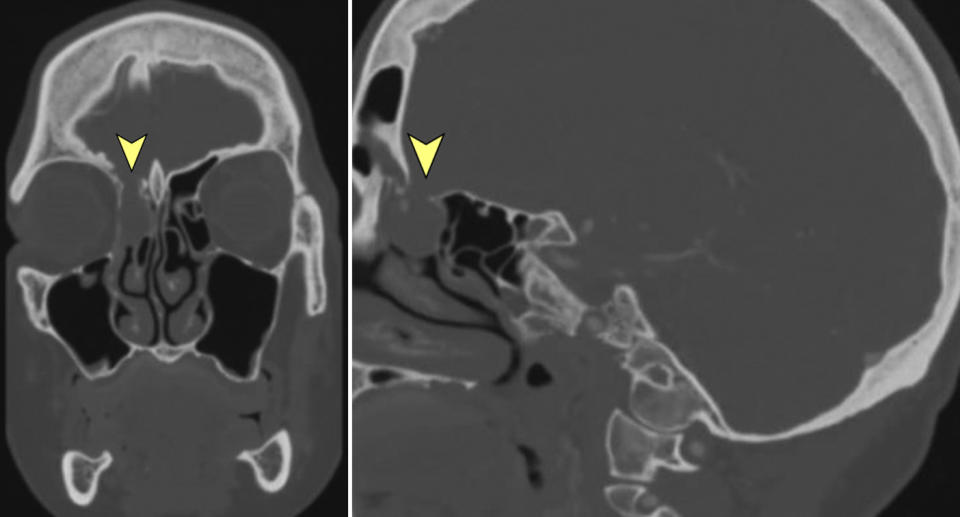Woman's brain 'leaks' during coronavirus test
A woman has suffered a brain fluid leak after doctors punctured the lining during a coronavirus test.
The woman, aged in her 40s, had an undiagnosed rare condition and the test she received may have been carried out improperly, according to the study published in the JAMA Otolaryngology–Head and Neck Surgery.
She underwent testing in March before presenting to doctors with symptoms including “metallic taste, headache, neck stiffness, and photophobia”.
Dr Jarrett Walsh, from the University of Iowa Hospital, senior author of the paper, told the AFP the woman had undergone two swabs.

He said she had undergone the swab ahead of an elective hernia surgery but noticed clear fluid coming out of one side of her nose.
"She had been swabbed previously for another procedure, same side, no problems at all. She feels like maybe the second swab was not using the best technique, and that the entry was a little bit high," he said.
The woman had been treated for a condition known as intracranial hypertension more than 20 years prior to her swab. The condition occurs when pressure of the fluid surrounding the brain is too high.
To fix the problem doctors had removed her nasal polyps. These are the soft growths which line the inside of the nasal cavity and look a bit like grapes.
Doctors also used a shunt to drain some fluid.
But it caused her to develop what's called an encephalocele, or a defect at the base of the skull which made the brain's lining protrude into the nose where it was susceptible to rupture.
This went unnoticed until old scans were reviewed by her new doctors, who carried out surgery to repair the defect in July.
Dr Walsh said he believes the symptoms she developed were a result of irritation to the lining of the brain.
If the problem hadn't been treated, she could have developed a potentially life-threatening brain infection from bacteria that traveled up the nose.
Dennis Kraus of Lenox Hill Hospital in New York, added the woman’s case shows why “adequate training” is needed for those performing Covid tests.
The risk from nasal tests is low, but if the problem hadn't been treated in this case, the woman could have developed a potentially life-threatening brain infection from bacteria that traveled up the nose.
with AFP
Do you have a story tip? Email: newsroomau@yahoonews.com.
You can also follow us on Facebook, Instagram and Twitter and download the Yahoo News app from the App Store or Google Play.




